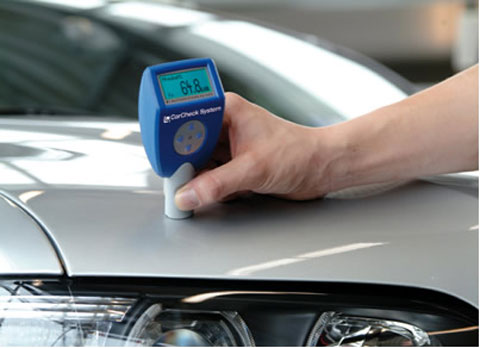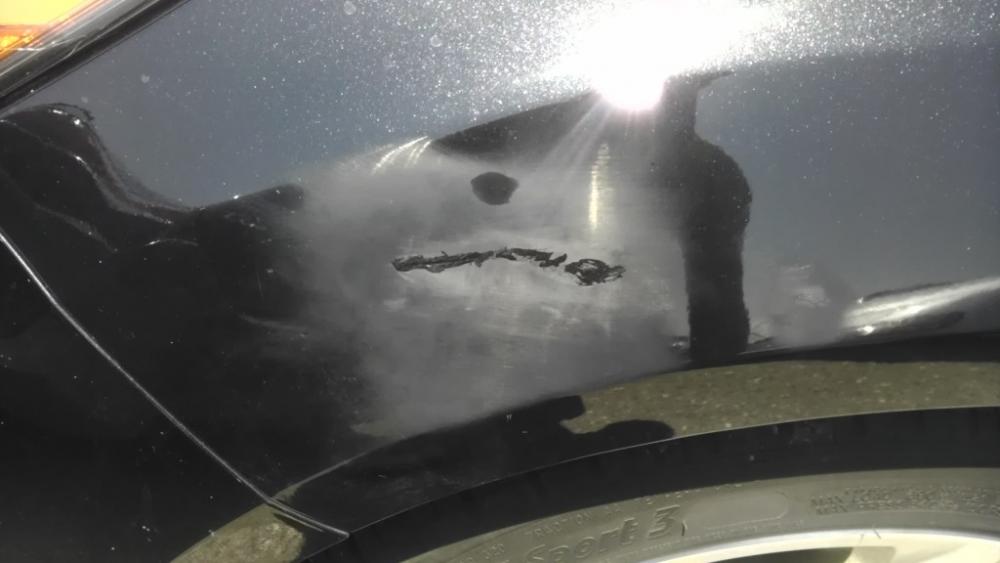- Popular Post
-
Posts
2,895 -
Joined
-
Last visited
-
Days Won
253 -
Country
Singapore -
Carnity Points
140 [ Donate ]
Content Type
Profiles
Forums
Advice
Business Listing
Car Deals
Recall
OBD II Car Diagnostics
Guest lead capture
STORE
Events
Gallery
Blogs
Posts posted by Barry
-
-
@harryd I would love to start a business like that but sadly I'm skint. Technicians salary is pretty low in Dubai, especially when you consider the amount of specialist stuff we're expected to know and the fact we have to constantly read, train and keep up to date with new technologies. However, if someone else wanted to take on that idea, I'd be more than happy to help.
-
I would love to start a business like that but sadly I'm skint. Technicians salary is pretty low in Dubai, especially when you consider the amount of specialist stuff we're expected to know and the fact we have to constantly read, train and keep up to date with new technologies. However, if someone else wanted to take on that idea, I'd be more than happy to help.
-
 1
1
-
-
Jack car up, remove wheels, fit the wheels that were originally on the front to the back and vice versa. 10-20 minutes if you have the proper tools such as a vehicle lift and air gun.
But as stated, this can only be done if the front and rear tyres are the same size. The size will be stamped on the side of the tyre and look something like 245/40 R18. 245 is the width of the tyre in millimetres, 40 is the depth of the sidewall in millimetres and 18 is the size of the rim in inches. Why they mix metric and imperial sizes on tyres I don't know. A few manufacturers have tried to use strictly metric sizing in the past but it never really took off.
There is no recommended mileage to rotate your tyres at. Tyres wear differently on different vehicles according to factors such as how the car is driven, tracking, environmental factors etc. and rotation should be done based on a visual comparison of wear between front and rear.
-
- Popular Post
- Popular Post
Can you post a picture of it so we can see?
Too much polishing isn't good for a car. Every time you polish, you're effectively removing a small layer of paint. A new layer of clean paint is exposed and this is where the shine comes from. Any detailer worth his salt will check the entire car with an ultrasonic paint depth gauge like the one below before he even plugs the buffing machine in. Some parts of the paint may be thinner than others and require a lighter touch when polishing. The other picture I have posted is typical of where the polishing has been so severe that the paint has been burnt through.
It's more important to use a high quality carnuba wax to protect the existing paint layer than it is to polish it every day. When I started driving I was very proud of my first car and polished it 2-3 times a week. The car always had a mirror finish and you could see your reflection in the paint but it wasn't long before patches of grey primer started showing through the white and eventually I had to repaint the entire car. It was a hard learning curve but then again I'm a mechanic/electrician, not a detailer.
Something else I would recommend is to use the two bucket method when you're washing your car. Keep your soap and water in one bucket and have another bucket with just plain cold water in it. Every time you dip the sponge the the soapy water and wipe your car, dip the sponge in the bucket of plain water before you dip it back into the bucket of soapy water. This way your sponge and soapy water is always clean, you're not rubbing dirty water and sand round your paint every time causing lots of fine micro scratches.
-
 11
11
-
The fault occurred when you washed the engine? It's possible that the sensor is ok and you just have water in the plug causing a short. The first thing I would try is disconnect the plug, check for signs of corrosion on the pins, spray some WD40 into both sides and reconnect it. If the EML is still on, reset it and go for a drive and check.
Worth looking at, could save you a few Dirhams.
-
Have you considered doing a track day at Dubai Autodrome? There will be information on their website.
Failing that, and not that I condone it, I have seen a bit of action taking place on the road from Sharjah to Oman but you have to ask yourself if it's worth the hassle and if you have enough wasta to deal with it if you're caught.
-
The two ratings to be concerned with are Ah (Amp-hour) and CCA (Cold cranking amps). These relate to how the battery empties its charge.
CCA is pretty simple, if your battery is 800 CCA, this means it will supply 800 Amps for 30 seconds at 0 degrees fahrenheit. This is related to starting your car and the large current the starter motor draws.
Ah is a little more complicated. It relates to how your battery discharges with a small load over a long time. Amps x time in hours to work it out. Say your battery can supply 4 amps for 10 hours, 4 x 10 = 40 Ah.
When changing your battery, especially on modern cars, it's important to change it for one with an equal or greater rating. With modern cars, if the battery isn't supplying enough power, it can trigger undervoltage faults in components which it turn can trigger all sorts of seemingly random faults.
I've recently worked on a fairly new BMW where one garage told the customer that they needed a new gearbox because of all the fault codes that were appearing. A quick check on some live diagnostic data with the vehicle running raised my suspicions that the battery might be faulty. On inspection, the battery appeared to be brand new. I spoke to the customer who informed me that he had fitted a new battery a month ago. I checked and the battery he fitted was of too low a rating. Correctly rated battery ordered and fitted and the gearbox came good again. One happy customer with his bill a lot smaller than it could have been.
-
You need either a voltmeter or a multimeter which is capable of reading volts. Most multimeters that you can buy in a shop will be able to do it. Simply set the range on it to anything above 12 volts, connect the red probe to the positive battery terminal and the black probe to the negative battery terminal. Even if you connect the probes the wrong way round, it doesn't matter. You will still get the same reading, it will just have a minus sign in front of it.
-
The emissions test tests your exhaust gas for carbon monoxide, nitrogen oxide, hydrocarbons and particulates. Aside from being an environmental thing, it's a good indicator of the condition of your engine and how it's running. If the fuel/air mixture is wrong, usually caused by a dirty/faulty sensor somewhere causing over or underfuelling. On older cars it was used to set up the mixture on carburettors.
-
These days you don't even need a scan tool, you just need a laptop and a lead which you can probably pick up for 50 Dirhams, maybe less, from one of the internet sites. There are loads of software available to buy cheap or rip from the torrent sites for free depending on what car you have, i.e. Consult 3 for Nissan, VCDS for VW/Audi vehicles, Planet for Peugeot vehicles, Google will tell you what the specific software for your vehicle is. Or, you can just get a piece of software like Delphi Diagnostics which is pretty comprehensive and will cover most vehicles. Then it's just a matter of installing the software and connecting your laptop to your car viz the OBD port and playing around with the software until you learn how it works. Don't worry, you can't break your car by reading/erasing fault codes but if your software has any programming options, I would recommend staying away from them until you learn properly how engine management systems work and how your software relates to them.
-
 7
7
-
-
Overheating is a main cause. Causes the cylinder head and block to warp if it's aluminium. The gasket can't do it's job properly if the two surfaces it's supposed to seal aren't flat.
I see a lot of gaskets fail because they corrode due to the system being filled with tap water instead of proper coolant or the correct coolant mixture. Coolant has corrosion inhibitors to stop this from happening while plain water speeds up the corrosion process. This is especially true on cars with aluminum engines.
-
The difference in the quote and actual price to repair LOL!
It would surprise you how many mechanics break things when they're working on your car. The part is usually replaced/repaired and the customer never finds out. I see it all the time.
The way some of them treat your car on a test drive. I spent a while in a garage here in Dubai but I wasn't happy with a lot of things so I left. The way the workshop foreman and business owner drove customers cars was shocking. Just because it's a fast car doesn't mean you're supposed to rag it to the edge. Drive it, check the fault, look out for any other possible faults, that's it. There was at least one accident with a customers car when I was there. I don't know how many times it happened before.
Mechanics will rarely tell you that they can't fix your car. Some of them will keep it for weeks and weeks trying different things and hoping they can diagnose the problem. I know of one garage here that has had a customers 4x4 for over 6 months. I figured out what the problem was pretty quickly as I'd seen it before but hey, I don't work there and they didn't pay me or ask for my opinion.
They won't tell you that they used cheap, Chinese pattern parts on your car and charged you the same price as the genuine article. Before you go into a garage, tell them to keep the box/bag the parts came in and give it to you when you collect your car. Especially things like brake parts and bushings which tend to wear out faster if they're cheap and nasty. Also ask them to keep for you the old parts which came off your car. I've seen mechanics saying they changed parts which they didn't, doing things like wiping the outside of an oil filter clean and telling the customer they changed it. I actually saw one garage in the UK getting caught out, the customer marked the old oil filter with a sharpie before he left the car in for a service. The garage billed him for an oil and filter change. When the customer came to collect the car, he pointed out to the foreman where he had marked the old oil filter. The oil had been changed but the filter hadn't. There were some very red faces in the garage that morning!
But in me saying things like this, please don't think all mechanics are crooks or they don't know what they're doing, this isn't true. There are plenty of decent, honest, hard-working people out there who just want to fix your car without ripping you off. For me, nothing gives me greater satisfaction than getting the job done, getting it done well and seeing the customer happy. A smile is worth a thousand Dirhams.
-
 2
2
-
-
Yes but injectors rarely give problems. A lot of garages try to sell fancy cleaning methods and flushes to every customer but in my eyes most of it is snake oil.
The only way to be sure what is causing engine hesitation is to drive it while plugged into a diagnostic tool and monitor/record live data such as fuel pressure, MAF, coil voltages etc. as the problem occurs. Even then, the cause of the problem could be something as simple as an air filter clogged with sand, a cracked/leaking boost or vacuum pipe etc. It just takes a good eye and a bit of experience to find the problem.
-
Accidents rarely occur due to mechanical failure. It's usually down to driver error, inexperience, driving too fast for the road/weather conditions, tiredness or plain old being distracted and not looking where you're going. The problem is you can have a crash even if you're driving perfectly. Sometimes it's not yourself you need to watch, it's everyone else!
But anyway, back to mechanical failure leading to accidents, it's not something I think about when I drive. You need to have faith in your car, just keep it well maintained and serviced and the chances are it won't let you down. If you actually sat down and thought about all the thousands of parts on your car and which one could fail at any moment, it would blow your mind and you would probably never get within 100 metres of a car again.
-
 1
1
-
-
Peugeot produced some fantastic cars in the late 80's and 90's, the 205 1.9 GTi, 405 Mi16, 306 GTi-6 etc. They acquired a bad reputation circa 2001-2006 due to poorly made cars and electrical problems. Now, they're back on their game again and producing quality cars but the problem is reputations stick and not as many people are willing to give them a chance. It's a bit like Volkswagen/Audi where it's the complete opposite. People think they're good cars because they were good in the 80's and had massive rallying success with the S1 and S2 Quattro but these days, it's a different story, they're overpriced and unreliable.
-
I've had a few Peugeots over the years, 106, 205, 206, 306, 406. Personally, I loved all of them. The smaller ones had fantastic handling and the 406 was soooo comfortable, it was like driving round in your living room.
I've noticed you don't have Citroen here in UAE. You're missing out! Same mechanicals as the Peugeots but even quirkier French styling. I used to have a Citroen ZX 16V, very rare care, even in the UK. I loved it. 170 BHP in a small, light, FWD hatchback. It had a strange passive rear steering system on the back axle which made for interesting handling and huge lift-off oversteer slides on the mountain roads.
-
After working on cars professionally for 18 years in UK/Ireland and coming here in January I've noticed something. I haven't met anyone here yet who does their own repairs. Everyone seems to go to a garage for the smallest problems. In my country, there is a big culture of DIY and fixing your own cars, in fact, that's how I actually got started out in my job, I repaired my own cars when I was younger and it went from there.
So does anyone on this forum work on/repair their own cars? I realise with Dubai being a city, some people don't have the space to do their own work. Are there community garages where you can hire a vehicle lift and tools for a few hours and have an expert for advice on hand so you can work on your own car?
-
 2
2
-
-
I disagree with the whole German cars being reliable thing. Maybe 25-30 years ago, they got a reputation for being reliable and deservedly so but these days, not so much. The Volkswagen/Audi FSI/TSI are crap in terms of reliability for want of a better word, the DSGs are terrible for clutch and mechatronic system failures and horrendously expensive to repair when they go wrong. The Germans put so much focus on trying to cram their cars with new technology and gadgets that some of it is bound to fail at some stage.
But to answer your original question, American or German? Japanese every time.
-
 7
7
-
-
As said, signs of wear and tear generally point to high miles. Worn pedal rubbers, gearstick, steering wheel, drivers seat bolster.
On a car with old style analogue odometer, make sure the numbers are all in a straight line, if one or more are slightly out of line, there is a chance it has been tampered with. Also check the screws on the dashboard above the steering wheel for marks caused by screwdrivers/torx or other tools. Also a good sign that someone has been in there tampering.
On cars with digital odometer it's a bit more difficult to tell for sure without plugging it into a computer. Some cars log the correct mileage in the ECU whilst the display can show something completely different but the ECU will always have the correct miles. It's so easy to change the mileage on digital odometers too, all you need is a laptop, a lead and a piece of torrented software and you can change the mileage on many cars in a few minutes.
On a side note, I once worked on a car in the UK and had to remove the dash clocks to fit a bulb and found a note stuck to the back saying 'Third time clocked LOL'. Some people have no shame.
-
 1
1
-
-
Check that one of the balancing weights hasn't fallen off your wheel.
-
 1
1
-
-
Why would you spend extra money changing 3 sensors when only one is possibly faulty? That's a very main dealerish attitude towards repair. The correct procedure would be to scan the fault code memory and see what it says. If a sensor has an intermittent fault, there will be a code logged towards it. If no codes are logged, the vehicle should be driven whilst plugged into the diagnostic tool and live data monitored and recorded so you can see exactly what's going on when the fault occurs. Even this doesn't mean a sensor is faulty. The wiring must be thoroughly inspected along the complete length from the transmission to the ECU. I have seen similar faults occur where 'mechanics' change and change various sensors but the fault still exists when the real issue was damaged sheathing causing the wires to the sensor to short circuit and send the vehicle into limp mode which was reset by turning the vehicle on and off again.
-
 2
2
-





Honda Odessey J review
in Honda General Discussion in UAE
Posted
The quoted figures of of 173 BHP and 225 nM from a 2.4 litre engine seem to suggest it comes from the factory tuned for economy but I would expect it could be safely remapped to produce 220 BHP. Although 173 BHP in a 1600 KG car leaves you with a power to weight ratio of 108 BHP per tonne which is more than adequate in a family car. The sort of people who buy these MPVs tend not to buy them to do track days.